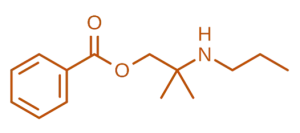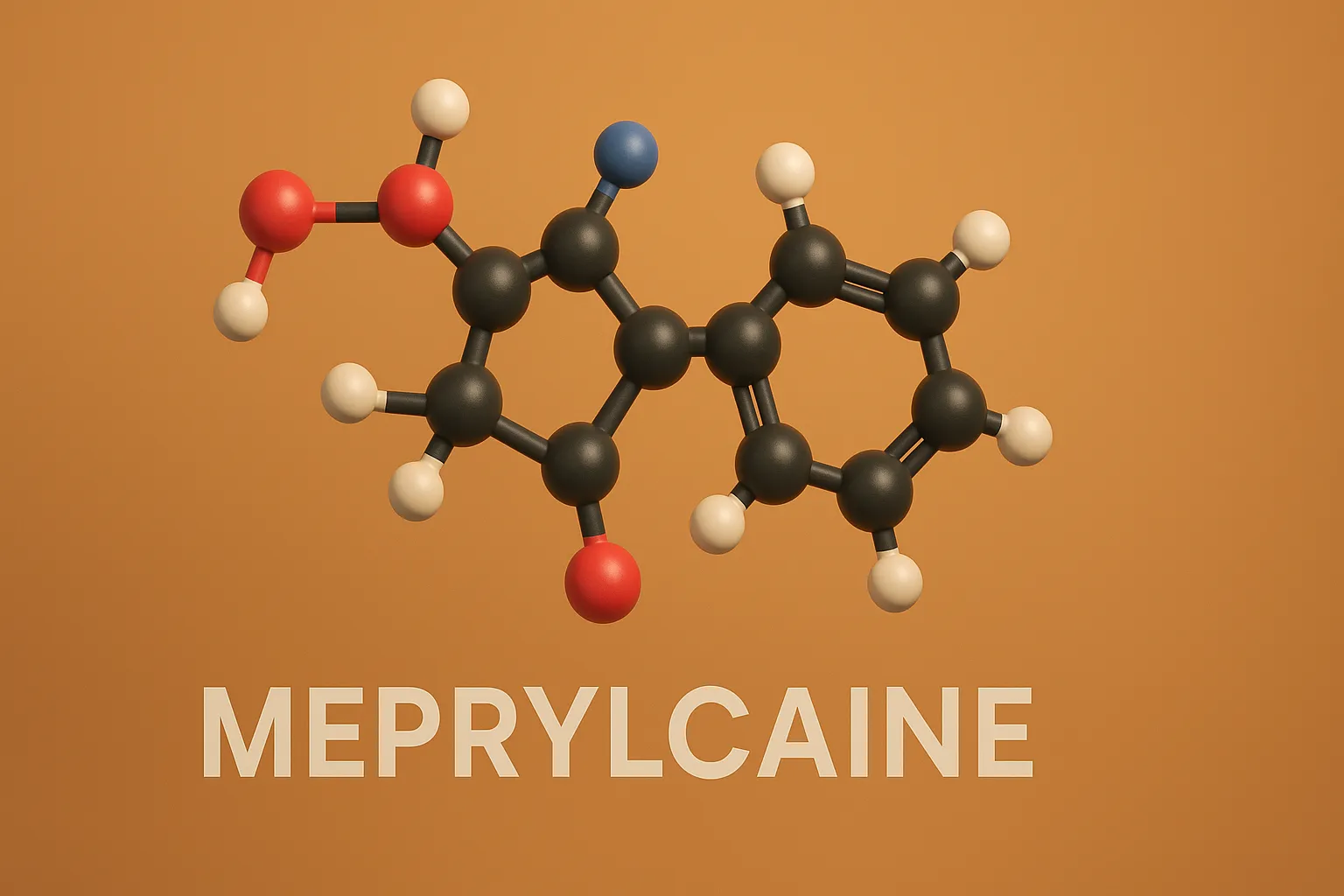Meprylcaine is an ester-type local anesthetic that provides surface and infiltration anesthesia by blocking nerve impulse conduction.
Structure of Meprylcaine
- It is a synthetic local anesthetic with a diethylaminoethyl substituent attached to a benzamide core.
- Chemical Formula: C₁₁H₂₂N₂O

Mode of Action
- Sodium Channel Blockade: Inhibits nerve impulse transmission by blocking voltage-gated sodium channels.
- Extended Duration: Provides longer-lasting anesthesia compared to simpler Local Anesthetics.
Uses
- Local Anesthesia: Used in minor surgical procedures and dental applications.
- Topical Preparations: Applied to mucous membranes for numbing before procedures.
Side Effects of Meprylcaine
- Central Nervous System Effects: Dizziness, tremors, and seizures with excessive use.
- Cardiovascular Toxicity: Hypotension and arrhythmias in high doses.

